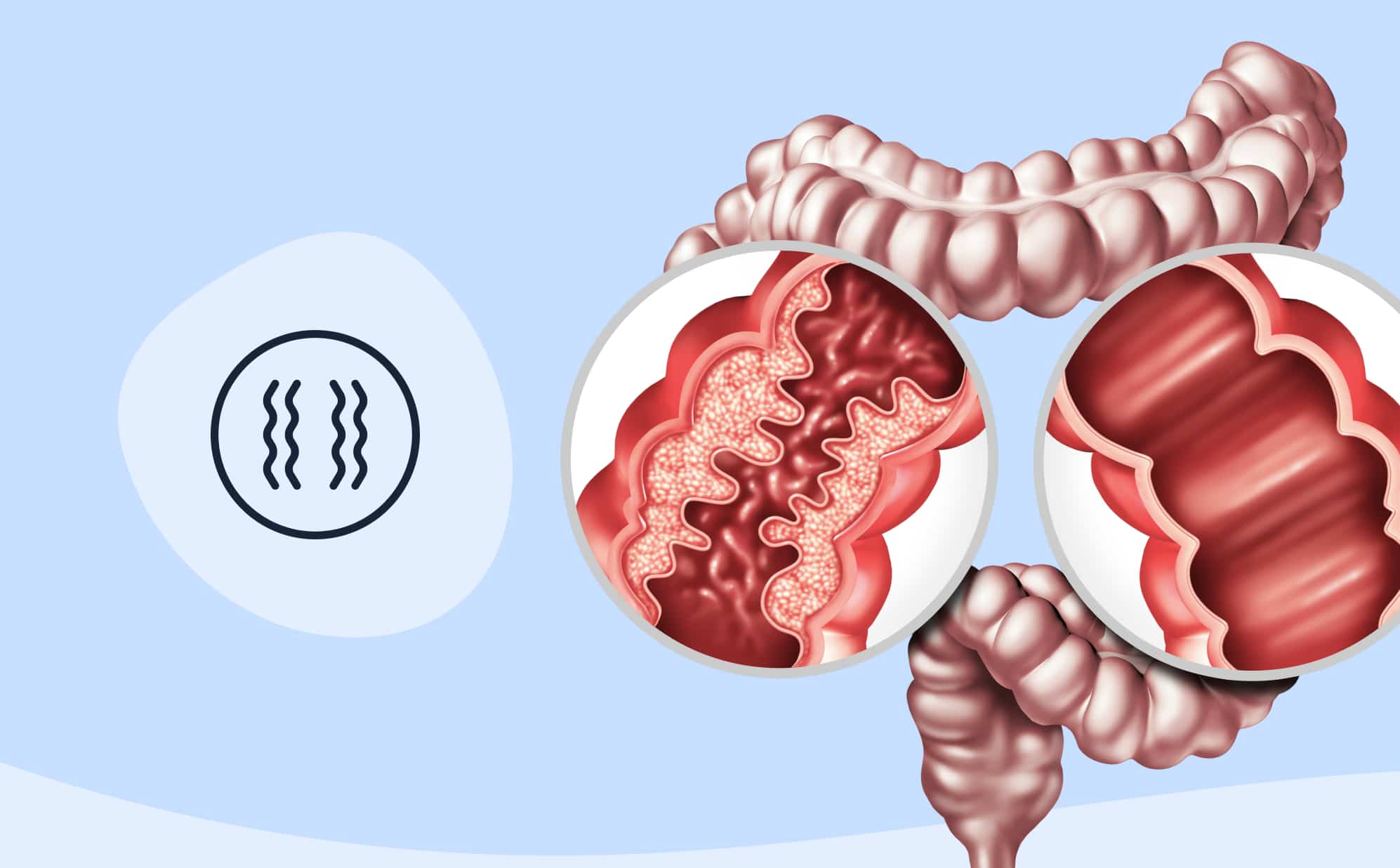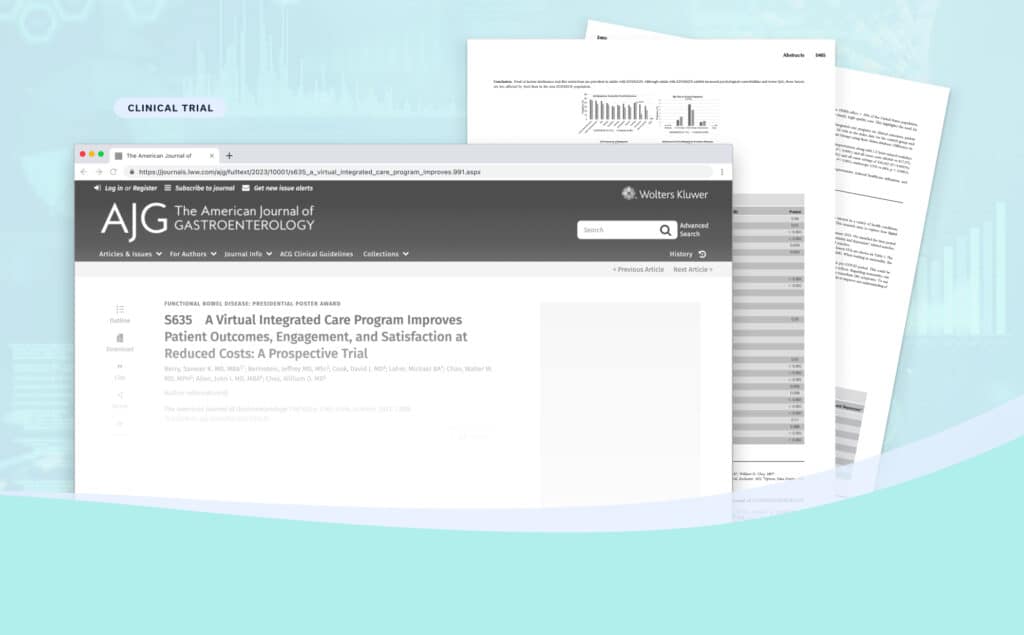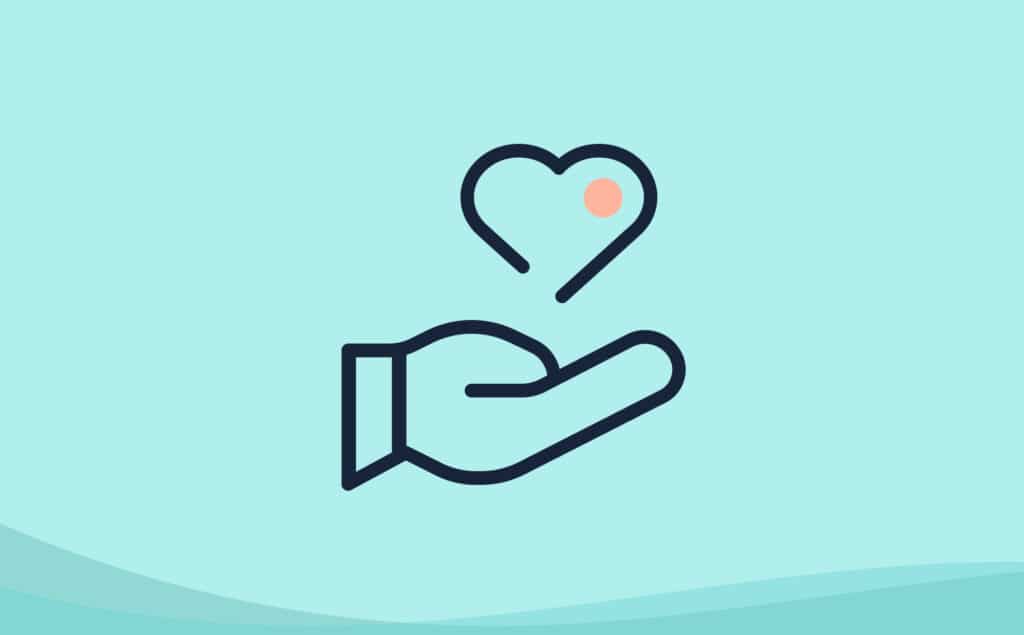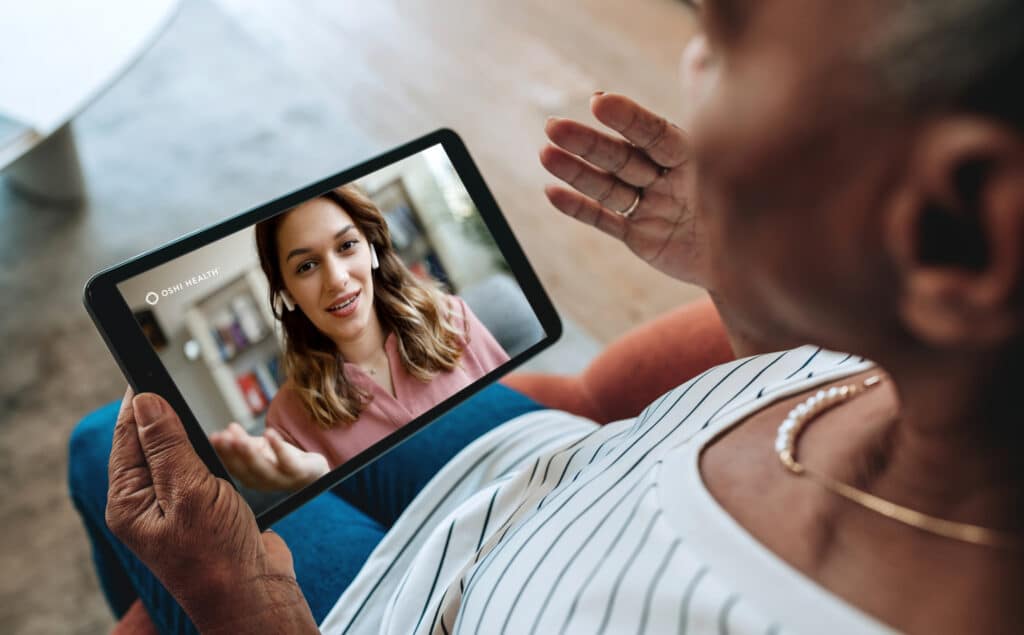Your inflammatory bowel disease (IBD) symptoms don’t have to control your life. At Oshi Health, we do things differently, taking a whole-person approach to treating and managing Crohn’s disease and ulcerative colitis.
If you’re living with an inflammatory bowel disease (IBD) like ulcerative colitis or Crohn’s disease, you’re probably very aware that it doesn’t just impact your digestive health. Symptoms like diarrhea, bloating, and abdominal pain can take both a physical and emotional toll. Discomfort can get in the way of everyday activities, work, and the fun stuff in life, like eating out with friends, spending time with loved ones, and traveling—especially when you’re having a flare-up (or worried about one occurring).
Sick of living with unpredictable symptoms that get in the way of life? Oshi Health’s clinically-proven, team-based care can help you live better with IBD.
Our GI specialists, including GI providers, gut-brain experts, and registered dietitians, work together to find what works for your body and create a personalized treatment plan that fits your unique needs. Plus, you’ll get ongoing support, so you’re never left hanging during a symptom flare or when anxiety hits.
Read on to learn more about how Oshi can help you manage inflammatory bowel disease (IBD).
Getting the right care for IBD means looking at the whole you
Whether you’ve been living with Crohn’s or colitis for years or are newly diagnosed, you deserve care that takes into account the whole you—not just your symptoms.
At Oshi Health, we take the time to understand what you’re going through and what you want from your care experience, so we can build a treatment plan that actually fits your day-to-day.
You don’t have to wait months for answers or bounce between specialists. With Oshi, you’ll have convenient virtual visits with a care team that listens and truly gets what it’s like to live with GI symptoms. All from the comfort of home.

According to a 2023 scientific literature review, it can take anywhere from 2 months to 8 years (!!!) to get an IBD diagnosis. And if you’re a woman or have a higher body weight, you’re more likely than others to experience a delay in diagnosis. Oshi gives you quick access to clinically-proven digestive care, so you’re not waiting months or years for answers.
During your first appointment, your provider will ask about things like:
- When your symptoms tend to flare up
- What foods or situations may be triggering discomfort
- Your sleep, stress levels, and daily routines
- Medications or treatments you’ve tried—and how they worked for you (or didn’t)

We know in-person care is part of IBD care—so we make it easier
Most people with IBD need in-person care at some point, like infusions, imaging, or colonoscopies. And we’re here to help make the experience as smooth as possible.
If your Oshi provider refers you for in-person testing or procedures, an Oshi care coordinator can step in to:
- Find in-network options near you
- Book appointments that work for your schedule
- Send over any necessary paperwork on your behalf
- Follow up on results, so nothing falls through the cracks
With Oshi, you don’t have to chase down referrals or sit on hold with multiple offices.
IBD treatment that goes beyond the symptoms
At Oshi, we don’t just treat your symptoms when they happen. Our IBD treatment approach involves treating the disease and addressing other factors, like diet and lifestyle, that can influence symptom flare-ups.
Here’s how we approach IBD treatment at Oshi Health.
1. Personalized medication recommendation
Medications are often part of personalized IBD treatment plans at Oshi Health and can help relieve and prevent symptom flares and help manage uncomfortable symptoms.
Your Oshi GI provider will suggest medications based on:
- The type of IBD you have (e.g., Crohn’s disease or ulcerative colitis)
- How severe your symptoms are
- Disease location
- And other factors unique to you
2. Dietary support
Living with a chronic GI condition often means having a complicated relationship with food. One day, you’re enjoying your favorite meal. Next, you’re stressing over what might have caused a flare.
Our registered dietitians can help you feel more in control of your symptoms and your nutrition, whether you’re in remission or experiencing a flare-up.
Together, you’ll explore a flexible, personalized approach to eating that expands your diet when you’re in remission and keeps you well-nourished when symptoms happen. So you can enjoy more food freedom (and stress less over what’s on your plate!).

3. Gut-brain therapies
Your brain and gut are always in conversation. It’s why stressful situations can make you feel queasy. This close link (AKA the gut-brain connection) can also have an impact on the severity of your IBD symptoms.
It’s completely understandable if you’re feeling anxious or low. And you’re not alone. Anxiety and depression are quite common in people with IBD, especially when symptoms are more intense.
Worrying about things like finding a nearby bathroom, having enough energy to get through the day, or dealing with stigma around your condition can take a real emotional (and digestive!) toll. These feelings are valid—and they deserve attention just like your physical symptoms.
Oshi gut-brain specialists are trained and licensed mental health professionals who can help you get to the bottom of stress triggers that might be contributing to symptom flares. They can also help you cope with the emotional side of living with a chronic health condition.

Gut-brain therapies for IBD
- Diaphragmatic breathing (AKA belly breathing)
- Cognitive behavioral therapy (CBT)
- Mindfulness-based therapies like guided meditation
- Acceptance and commitment therapy (ACT)
Ongoing care for IBD
There’s no cure for Crohn’s disease or ulcerative colitis, but it’s possible to effectively manage symptoms and flare-ups. Better quality of life is within reach! Your Oshi care team can create an ongoing treatment plan to help you achieve and stay in remission.
Our providers work together to empower you with the tools and knowledge to self-manage your condition. But they’re also there during flare-ups and whenever you need support, with virtual visits available within days—including on evenings and weekends.
Takeaway
Your IBD treatment with Oshi is as unique as you. Oshi’s team of GI specialists works together to provide whole-person care that meets you where you are—whether you’re seeking a diagnosis, newly diagnosed, or have been living with IBD symptoms for years.
Our clinically-proven approach addresses diet, lifestyle, and the gut-brain connection, so you don’t just get temporary relief from symptoms. You get back control of your life.
Achieve lasting IBD symptom relief with Oshi Health: Schedule your first appointment in 3 minutes or less!
Frequently asked questions
-
You’ll start by seeing a GI provider. Together, you’ll decide if you might benefit from gut-brain and/or dietary support.
While we tailor your care based on your unique symptoms, goals, and preferences, most Oshi patients work with multiple GI specialists.
Evidence shows that a team-based approach involving medical, gut-brain, and dietary care leads to better outcomes than traditional care.
-
You’re free to schedule virtual visits with your care team whenever you need support, including evenings and weekends.
Already seeing an in-person GI provider? We’re here to serve as an extension of your care between visits.
-
Oshi Health is in-network with most major health plans—and our network is regularly expanding. As an in-network provider with most major insurers, our GI care services are billed through insurance, and any copay or deductible will depend on the plan’s specifics. To get a tailored cost estimate or determine eligibility based on your plan details, click here to provide your member info.
Please note that we’re not currently in-network with Medicare or Medicaid plans.
Learn more on our pricing and insurance page. -
We take a concierge approach to diagnostic and other tests to avoid putting you through unnecessary or repeat imaging or lab work.
If your provider recommends in-person testing, like a colonoscopy, our care coordinators can help you find a convenient, in-network location.
*Names have been changed to maintain confidentiality
Oshi is your partner in digestive health
Feel like your digestive concerns are running your life? You’re not alone—and we’re here to help you find lasting relief.
Oshi Health GI providers, gut-brain specialists, and registered dietitians work together to address the root cause of your symptoms and find solutions that actually work for you.
Whether you’re dealing with chronic digestive issues or unpredictable symptom flare-ups, our GI specialists deliver:
✔ Personalized care plans tailored to your lifestyle
✔ Science-backed strategies to calm your gut
✔ Compassionate, whole-person care
✔ And so much more!
Ready to take control of your gut health?


















